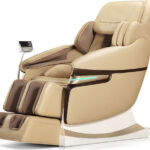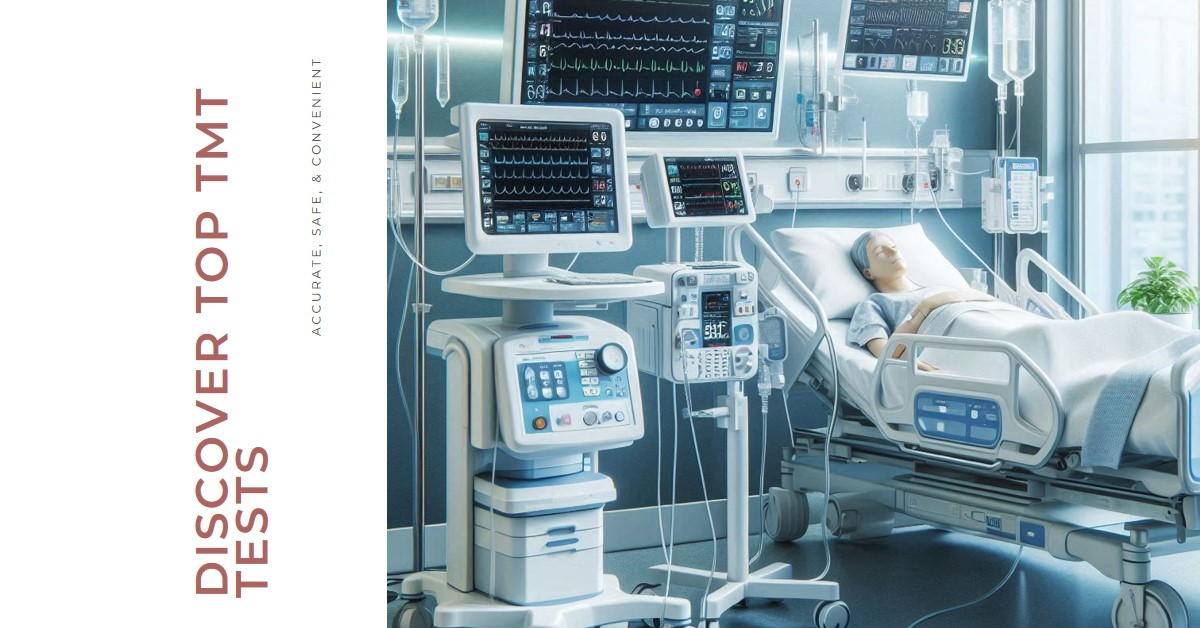Are you searching for a TMT test near me? You’re not alone. Whether you’re experiencing chest pain, want to monitor your heart health, or are undergoing a pre-surgery evaluation, the treadmill stress test (TMT) is often recommended by doctors to assess heart function under physical exertion. This article will take a deep dive into the treadmill stress test, how it works, when you need it, and where to find the best TMT test near you.
In this guide, we’ll cover everything you need to know, from the science behind the test to preparing for your appointment and finding a nearby diagnostic center. So, let’s get started!
What is a TMT Test?
A TMT (Treadmill Stress Test) measures how your heart performs under stress, which is induced by walking or running on a treadmill. While exercising, the test records the electrical activity of your heart, including heart rate, blood pressure, and breathing. It helps doctors detect abnormalities that might not be evident when the body is at rest, such as coronary artery disease (CAD), arrhythmias, or blockages.
The test is especially useful for those with symptoms like:
- Chest pain
- Shortness of breath
- Dizziness
- Irregular heartbeat
How Does the TMT Test Work?
During the TMT test, electrodes are placed on your chest, arms, and legs to monitor your heart’s electrical signals. You start by walking on a treadmill, and the speed and incline gradually increase. The goal is to push your heart to a safe level of exertion while continuously monitoring your vital signs.
The entire procedure lasts about 30-45 minutes, although the actual time on the treadmill is usually around 15 minutes, depending on how your body responds. The test ends when you reach a target heart rate, show signs of fatigue, or experience symptoms such as chest pain or dizziness.
Why You Might Need a TMT Test
There are several reasons your doctor may recommend a TMT test:
- Diagnosing Coronary Artery Disease (CAD): CAD occurs when the heart’s arteries narrow or become blocked, reducing blood flow. A TMT test can help detect signs of this disease by revealing irregular heart rhythms or blood flow issues during exercise.
- Evaluating Heart Condition Post-Surgery: If you’ve had a heart surgery or procedure, a TMT test can determine how well your heart is functioning after the operation and help guide your rehabilitation.
- Assessing Risk of Heart Attack: For individuals with risk factors such as high cholesterol, hypertension, or a family history of heart disease, the TMT test is a non-invasive way to assess heart health.
- Clearing for Physical Activity: Many doctors recommend a TMT test before patients undergo vigorous physical activities, particularly for those over the age of 40 or with existing heart conditions.
How to Prepare for a TMT Test
Preparing for a TMT test is simple, but crucial for accurate results. Here’s how you can get ready:
- Wear Comfortable Clothes and Shoes: Since you’ll be walking or running on a treadmill, wear comfortable exercise clothing and running shoes.
- Avoid Heavy Meals Before the Test: Eat a light meal at least 2-3 hours before the test. Avoid caffeine, as it can interfere with the results.
- Medication Considerations: Consult with your doctor about any medications you’re taking. In some cases, your doctor may ask you to temporarily stop certain heart medications before the test.
- Bring Relevant Medical History: If you have any past medical records, particularly related to your heart health, bring them along.
Where to Find the Best TMT Test Near Me
When looking for the best TMT test near bangalore, there are several factors to consider:
- Reputation and Accreditation: Choose a diagnostic center with a good reputation and appropriate accreditation. Look for centers with certified cardiologists who can interpret the test results accurately.
- Technology and Equipment: Ensure the diagnostic center has state-of-the-art equipment. Outdated machines may not provide the most accurate readings.
- Patient Reviews: Check reviews from previous patients to get an idea of their experience with the facility, staff professionalism, and overall care.
- Convenience and Accessibility: Choose a location that is convenient to visit and has flexible appointment slots to suit your schedule.
Popular Diagnostic Centers for TMT Test
Some well-established diagnostic centers offering TMT tests near you may include:
- Ecotown Diagnostics (if you’re in the Bangalore area, they offer comprehensive TMT testing services)
- Apollo Diagnostics
- SRL Diagnostics
- Manipal Hospitals
Prices for TMT tests may vary depending on the location and the diagnostic center, but typically range between ₹1500 to ₹3500 in India.
What Happens After the Test?
Once the test is complete, the results will be analyzed by a cardiologist or physician. A normal result usually indicates that your heart is functioning well during physical activity. However, if the test shows signs of decreased blood flow or abnormal rhythms, your doctor may recommend further tests or treatments, such as:
- Coronary Angiography
- Medication Adjustments
- Lifestyle Changes
Early detection through a TMT test can save lives, especially for individuals at risk of heart disease.
How Accurate is the TMT Test?
The TMT test is a reliable tool for diagnosing coronary artery disease, with a sensitivity rate of 68% and specificity rate of 77% according to clinical studies. While no test is 100% accurate, TMT offers a non-invasive and affordable option for screening heart disease. In some cases, further testing such as an angiogram or stress echocardiogram may be necessary for a more comprehensive assessment.
FAQs about TMT Test
1. How long does a TMT test take?
The entire TMT test takes about 30-45 minutes, though the time on the treadmill is generally around 15 minutes.
2. Is the TMT test painful?
No, the TMT test is not painful. However, you may feel fatigued or experience shortness of breath as the intensity of the test increases.
3. Can I drive home after the test?
Yes, you can typically drive home after the test unless your doctor advises otherwise.
4. What should I do if I feel unwell during the test?
If you feel dizzy, chest pain, or experience any discomfort, inform the technician immediately. The test will be stopped if necessary.
5. How often should I have a TMT test?
This depends on your health condition and risk factors. Your doctor will recommend a testing schedule based on your specific needs.
Conclusion
The TMT test is a critical diagnostic tool for assessing heart function under stress. Whether you have symptoms of heart disease, a family history of cardiovascular issues, or simply want to ensure your heart is in good shape, booking a TMT test near me is a smart step toward safeguarding your health. Make sure to choose a reputable diagnostic center, follow preparation guidelines, and consult with your doctor to understand the results.
Are you ready to book your TMT test and take the first step toward a healthier heart?
Also know Best Diet Clinic in Noida: Dr. Namita Nadar Diet Clinic – Your Path to a Healthier You.










